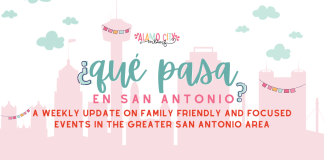This post is brought to you by Baptist Health System.
A high-risk pregnancy is a condition when the mother, the baby, or both are at a higher risk of developing health problems during pregnancy or delivery. This suggests that extra care is needed to have a healthy and successful pregnancy.
If your pregnancy is diagnosed as high-risk, understanding your condition may help ease your anxiety. Here are eight things to know about high-risk pregnancy.
1. “High-risk” may just mean increased risk.
Only about 6–8% of high-risk pregnancies develop complications. You may have heard different complications and health issues about high-risk pregnancies, but being considered high-risk doesn’t always mean you won’t have a healthy baby. There are various tests and options to closely monitor the condition of you and your baby throughout pregnancy. Knowing exactly what is going on helps your doctor adjust your treatment plan according to your and your baby’s needs, and it can also help you to cooperate with your doctor to achieve positive outcomes.
2. Your existing or previous health conditions can affect your pregnancy.
Existing or previous health conditions like high blood pressure, polycystic ovarian syndrome (PCOS), diabetes, kidney disease, autoimmune disease, thyroid disease, obesity, human immunodeficiency virus/acquired immunodeficiency syndrome (HIV/AIDS), and Zika infection heighten the risk of pregnancy with the increased risk of damage to organs, preterm birth, and stillbirth, among others. It is very important to work closely with a high-risk pregnancy doctor to monitor your and your baby’s health.
3. Different conditions of pregnancy may require more careful treatment.
Conditions like multiple gestation (pregnancy having two or more fetuses), gestational diabetes (diabetes developed during pregnancy), preeclampsia (sudden increase of blood pressure), and other conditions require working with a healthcare provider to increase the chances of having a healthy pregnancy.
4. High-risk pregnancies don’t just happen among women aged 35 or older.
Having a baby at a very young or older age can be a factor for a high-risk pregnancy. Teenage pregnancies are more likely to develop high blood pressure and anemia as well as preterm labor compared with pregnancies in older women. On the other hand, women aged 35 and older who are pregnant with their first baby are also susceptible to risks such as high blood pressure, diabetes, pregnancy loss, longer labor, and genetic disorders for the baby. But then again, many teenagers and women over the age of 35 still have healthy babies.
5. You are likely to feel a mix of emotions.
Having a high-risk pregnancy can create many different feelings. The worry and anxiety of knowing things may go wrong can hinder you from enjoying your pregnancy. Having these feelings is normal and there is nothing wrong with asking for help. Ask your family, friends, and your partner for help if things get too overwhelming for you.
6. You will more than likely have more frequent prenatal visits.
Your healthcare providers will want to closely monitor you and your baby to stay updated about your condition. Especially if you have existing diseases, this helps them determine if the treatment is effective, as well as to detect potential issues early and treat them as soon as possible to avoid serious problems in the future.
7. Some factors can be treated and controlled before pregnancy to reduce risk.
Lifestyle factors like alcohol, tobacco, and drug use can be controlled before you become pregnant to reduce the risk of having a high-risk pregnancy. Studies show that controlling the intake of these substances can decrease the baby’s risk of having fetal alcohol spectrum disorders (FASDs) and sudden infant death syndrome (SIDS), as well as reduce the risk of preterm birth and stillbirth.
8. There are still things you can do to increase your and your baby’s health and wellness.
Do not miss a prenatal appointment, have a healthy lifestyle, and look after your mental health. Increasing your health and wellness also increases your baby’s. Check out classes, events, and resources that can educate you on how to take care of both your own and your baby’s health during pregnancy, birth, and postpartum.
Having a baby is an exciting time for a family, and the team of professionals at all Baptist Health System’s locations wants you to have an amazing experience. It’s true that high-risk pregnancies come with different issues, spanning from minor to life-threatening. But having a healthcare provider who can be with you from preconception to the birth of your baby may decrease the risks.
Sources:
American Pregnancy Association
National Institutes of Health
Healthgrades











